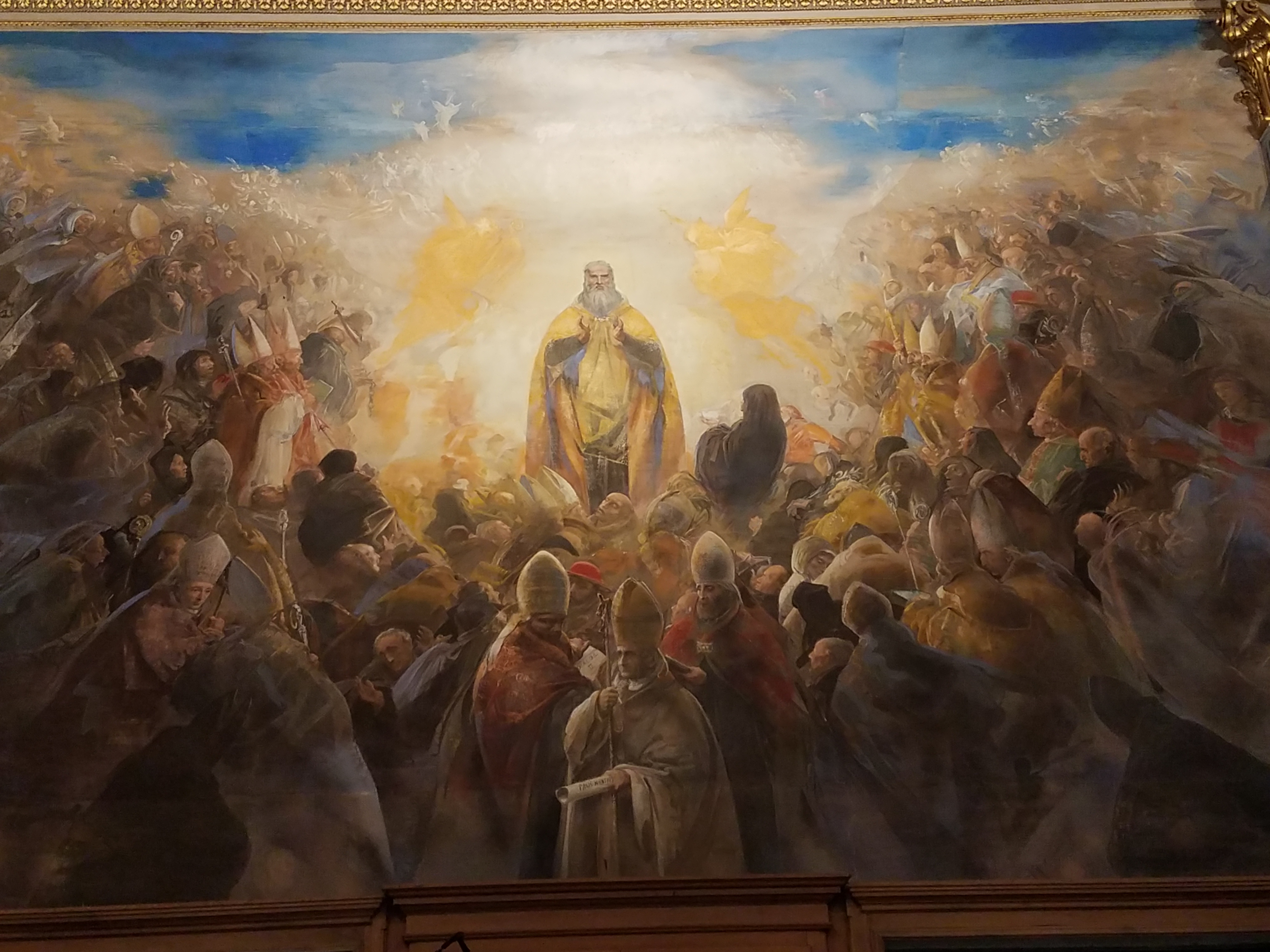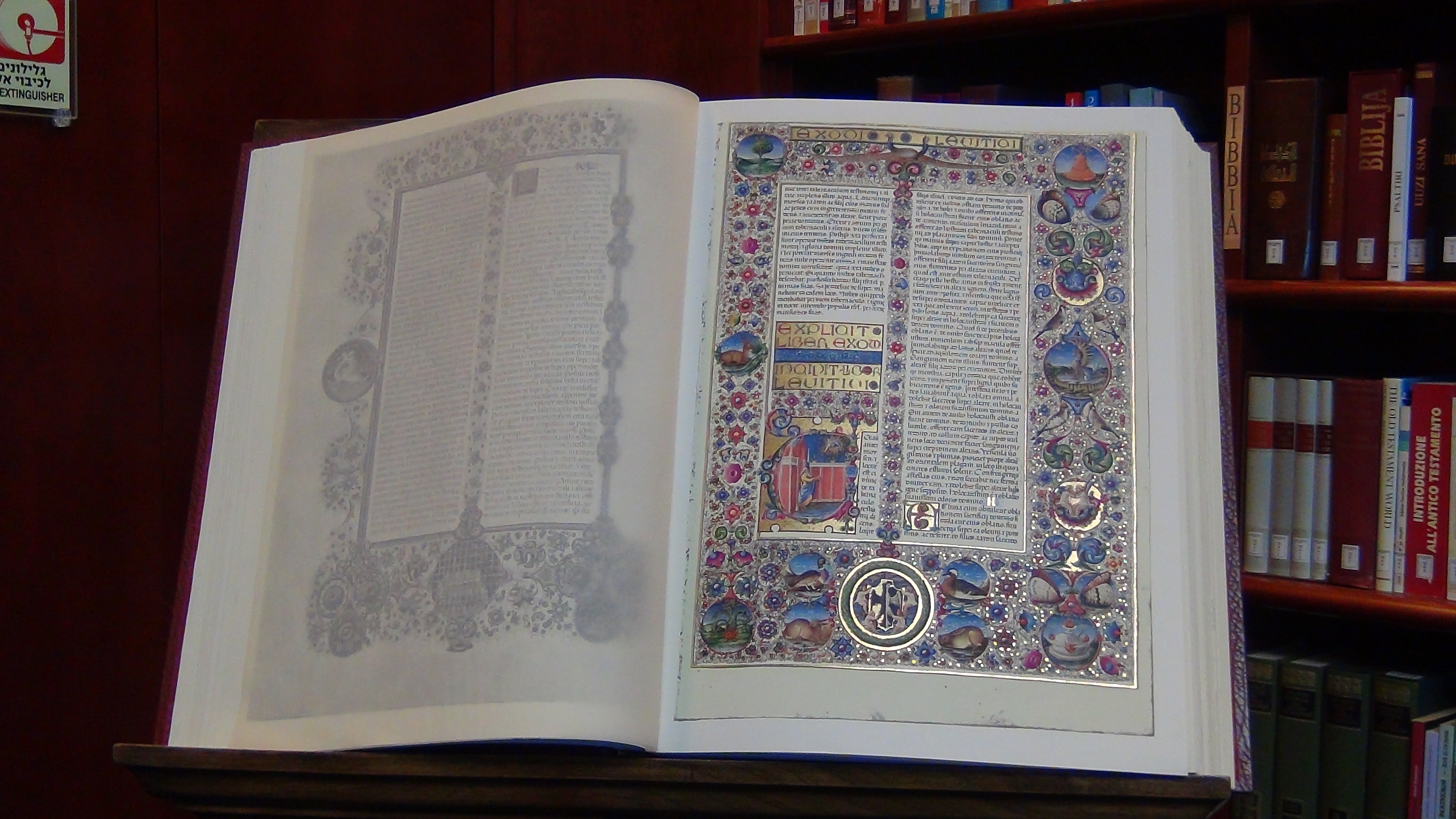Palm Sunday, it has begun! The final journey to “Eloi, Eloi, lema sabachthani?” “My God, my God, why have you forsaken me?” Death is a human experience of being “forsaken”, a fear of total separation “abandonment” to suffer the final battle for the soul at the hour of death with the evil one, the final test of faith. Jesus walked the walk of death in his humanity though not in his divinity to leave us with the hope of salvation when the final hour comes calling for our souls may we be faithful to the end. Palm Sunday is our remembrance not simply of his passion and death for our salvation but also of our readiness to undergo the test, the final battle and finish the good fight.
It has begun with Palm Sunday, the beginning of the end not just of Holy Week in which we recognize the time has come to “walk” in the steps of the Lord’s Passion but of our own test of faith. Do we walk the walk or do we deny? From the agony of “tears and supplications” to the final breath Jesus taught us the way of faithfulness and obedience to the Father. Jesus taught us there is suffering in which we feel alone and forsaken in order to testify to our faith. We are greater than our feelings and our weaknesses. We are being made perfect as we are transformed into the divine nature through death to self but not all. “Not all” we shall consider later.
It has begun are we ready to follow? Jesus requested his disciples to go and bring him a “colt tethered on which no one has ever sat.” Jesus has walked for years and has the strength to bear the weight of the cross to come but now he desires a colt to ride on. What does this mean? In short it means obedience to the Father in all of the smallest details foretold of his coming. A king does not come into his kingdom on foot “see your king comes, seated upon an ass’s colt”. As Saint Leo the Great pope wrote “Lowliness is assured by majesty, weakness by power, mortality by eternity. To pay the debt of our sinful state, a nature that was incapable of suffering was joined to one that could suffer…was able to die in one nature, and unable to die in the other.” He humbled himself in our human nature to bring us into his divine nature out of love.
Jesus was not only fulfilling the prophesies of centuries past that pointed to his coming, he was fulfilling the law and the prophets the Father’s way while making all things new in himself. The Father’s way is one of surrender to the divine will to become a new creation. The Father’s way of obedience is not to create pawns out of humanity as puppets on a string. Jesus came “taking the form of a slave…obedient to the point of death, even death on a cross” to deliver us from the slavery of sin into the freedom of God’s glory. The Father’s way is to bring about a new creation in us perfect in his image with power and love beyond all understanding in order to go forth and make disciples of all nations. Not our way but the Father’s way of humble service. For this reason, the world cannot accept the Father’s way.
The world looks to create its own power and define its own love, a temptation from the evil one from the beginning of time. It was the free will of the angels that produced the fall of Satan and his dominion of angels. It was the free will of Adam and Eve that allowed temptation to overcome them. It is the free will of even Jesus’ followers to complain “Why has there been this waste of perfumed oil? It could have been sold for more than three hundred days’ wages and the money given to the poor. They were infuriated with her.” “They” how quickly even one act of love from the “woman” with the costly jar of alabaster oil turned future saints into sinners and into a movement spreading anger, lack of understanding, and one of them, Judas Iscariot into a traitor to hand him over to the chief priests. Let us consider how the evil one is quick to turn good upside down into evil. Why “not all will enter the kingdom of heaven”.
First, have you noticed how the Catholic church is criticized by some of the faithful for all the beauty of art it possesses in its shrines, cathedrals, and museums? The criticism is that “it could be sold to help the poor.” Sound familiar? God granted a few a gift of grace to create a masterpiece not to be auctioned to the highest bidder but to serve as a gift of spiritual awakening accessible to all who come with an open heart of love. We are blessed by those he has blessed so that the temples of our hearts may be enriched with faith, hope, and love.
Second, consider how social justice in the “woke” culture. What is “woke”? “Woke” is slang for “awake” that is to awaken to social awareness of injustice. The “woke” world of today’s culture has found a powerful weapon in social media to bring awareness to issues of racial injustice. This has quickly been captured by some to weaponize with hate speech in order to shame others into silence. When we listen to those who proclaim justice for some and not for all, when some lives matter more than others, when hate is seen as justice in the hands of some who desire to “woke” others into shame then the evil one is prowling about seeking the ruin of souls. This is not the means sought by Martin Luther King, Jr., or Cesar Chavez, or Mahatma Gandhi who understood awareness does not come through hate, violence or oppression. These are the weapons to gain power not unity and peace.
If the goal of “woke” culture is to awaken us then let us be also awaken to the evil means that seek its own ends in a culture of death. The world is quick to reject good for evil and create a “herd” mentality of rebellion. “They” did it to Jesus then “they” can quickly become “us”. Let us all become “woke” to the kingdom of heaven like the five prudent virgins in the gospel of Mathew (Mt. 25:1-13) who were prepared waiting for the bridegroom. Stay awake! Stay awake because the battle is raging institutionally in education, health care, in the church, and its coming home to divide Father against son, brother against sister. But sin cannot hide in its darkness because the light of Easter has come into the world and we follow the light of truth.
It is our free will that leads us to consider “not all” will be transformed and made perfect into a new creation. Death separates the souls who died with the stain of sin waiting a final cleansing in purgatory. Death also separates the “grain from the weeds”, that is those destined for the fire of cleansing from those destined to the fire of damnation. Who will we follow, the Father’s way humbled as Jesus did unto death or the way of the past world that is the way of a fallen nature? The freedom to choose is now before us before it is too late. Are we ready to bend our knees and confess “Jesus Christ is Lord” of my life?
This Passover will be different not from the big “T” of Tradition but from the little “t” traditions of how we celebrate this coming week as directed by our Bishop, Daniel Flores. It has already begun with the manner we entered without a procession to receive our palms. Holy Thursday there will not be any washing of the feet and Good Friday we will not be touching or venerating the cross with a kiss, and Holy Saturday the darkness will not be lighted by candles but the light of Jesus will shine even brighter. In the midst of all the darkness this world has endured this year faith, hope, and love never dies.
This is our Passover from death to life. This is our calling to rise above the earthly pilgrimage and enter the kingdom of heaven in the “Via Dolorosa” and shed our sins before the mercy of God. How will it end?








Recent Comments